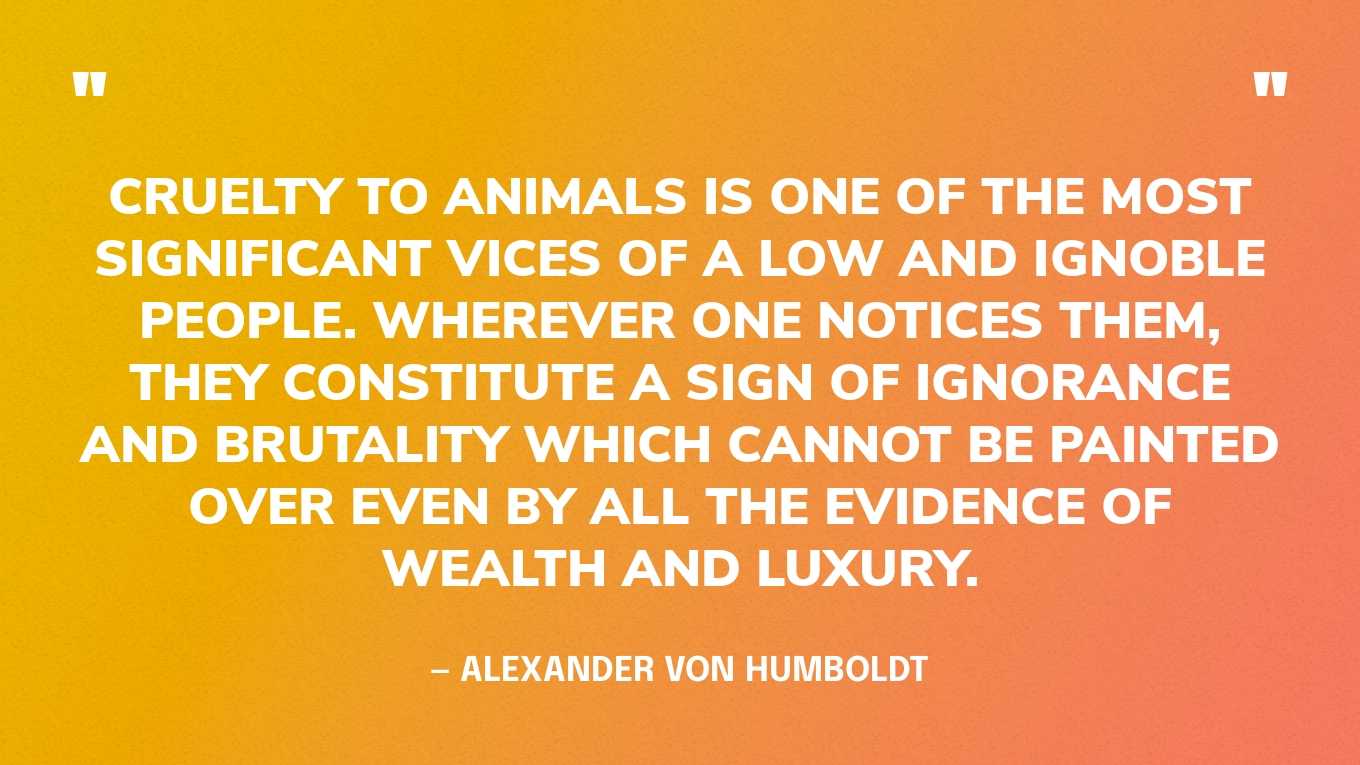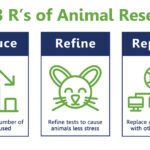In contemporary discourse surrounding animal welfare, the alarming phenomenon of individuals who take pride in their disregard for animal cruelty warrants deeper examination. This phenomenon can often be perplexing, as one might wonder why some individuals actively boast about their apathy towards the suffering of sentient beings. Several interlinked factors contribute to this attitude, which may offer insights into broader societal norms and psychological dispositions.
At the onset, it is essential to delineate the cultural milieu within which this behavior manifests. Many societies have historically commodified animals, relegating them to mere resources rather than recognizing their intrinsic value. This instrumental view of animals is deeply entrenched in various industries, particularly agriculture, entertainment, and biomedical research. As a result, those who dismiss or even revel in the infliction of cruelty on animals may be echoing a societal ethos that prioritizes human pleasure, convenience, or profit over empathy and ethical considerations.
Moreover, the normalization of violence in media also plays a pivotal role. From sensationalist portrayals of bloodsports to the trivial depiction of animal suffering in animated films, society inadvertently desensitizes individuals to the gravity of animal cruelty. When people consume content that glorifies violence—be it against animals or humans—they may develop a skewed perception, where such cruelty becomes an acceptable part of entertainment. In turn, this exposure fosters a disconnection between attitudes and actions. It becomes increasingly feasible for individuals to boisterously proclaim a lack of concern for animal welfare without grappling with the moral implications of their stance.
Underlying these behaviors may also be cognitive dissonance. Individuals often grapple with conflicting beliefs and attitudes, especially regarding ethical dilemmas. Some may genuinely feel empathic towards animals but choose to disengage from the discourse surrounding animal rights due to the discomfort elicited by the harsh realities of animal suffering. To alleviate this internal conflict, they may adopt a façade of indifference or even take pride in their disregard, thus reinforcing their belief systems. Such bravado serves as a psychological defense mechanism, providing a false sense of superiority over those advocating for compassion and cruelty-free practices.
The concept of social identity further elucidates why some people boast about their indifference to animal cruelty. Individuals often align themselves with groups that share similar values and beliefs. In certain circles, displaying an aversion to empathy towards animals may be synonymous with toughness or rugged individualism. This camaraderie, which may stem from a desire to bolster one’s social standing, often perpetuates the cycle of cruelty. Those who exhibit these attitudes could be subconsciously striving for validation or attempting to solidify their position within a particular social framework where empathy is viewed as a weakness.
Furthermore, the presence of anthropocentrism—a worldview that places human beings at the center of moral consideration—facilitates this alarming trend. Many laud this perspective as rational or practical, often invoking utilitarian justifications for the treatment of animals based solely on their utility to humans. In this context, people who boast about their disregard for animal rights may be celebrating a perverse ideology that prioritizes human interest above all else. This worldview posits that animals exist primarily for human use, thus legitimizing cruelty and ignorant boasting.
The impact of social media cannot be overlooked in this discussion. Platforms that enable instantaneous sharing of thoughts and experiences often amplify such attitudes, creating an echo chamber where individuals celebrate their disdain for animal welfare. This amplification can lead to a skewed sense of normalcy surrounding cruelty, as what may have once been regarded as unacceptable can quickly morph into a trendy boast. The anonymity and distance afforded by online interactions allow individuals to express their callous views with little regard for social repercussions, further entrenching their stance.
Considering the underlying psychological mechanisms, cultural influences, and social dynamics, it becomes apparent that the act of boasting about ignoring animal cruelty is a multifaceted issue. A significant portion of this behavior seems less about cruelty itself and more about the desire for identity, validation, and allegiance to perceived strength or dominance. The lamentable aspect of this discourse is the missed opportunity for growth, compassion, and enlightenment that arises from engaging with the truths of animal suffering.
In conclusion, the phenomenon of individuals taking pride in their apathy towards animal cruelty is not merely a quirk of modern society but rather a reflective symptom of deeper ideological frameworks. These frameworks, rooted in cultural, psychological, and social paradigms, forge an environment where ignorance can be misconstrued as strength. Addressing these issues requires a concerted effort to challenge the status quo by fostering empathy, encouraging discourse, and promoting ethical considerations in our interactions with animals. The fight against animal cruelty is not just a battle for the well-being of animals; it is a quest to reshape our humanity and moral compass. The journey begins with recognizing the inherent value of all sentient beings and working relentlessly to abolish the very notion of indifference that burgeons in the dark recesses of society.








